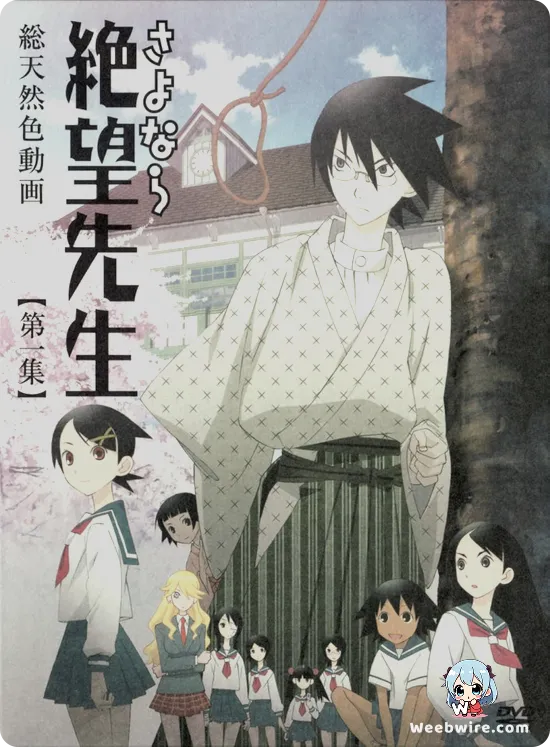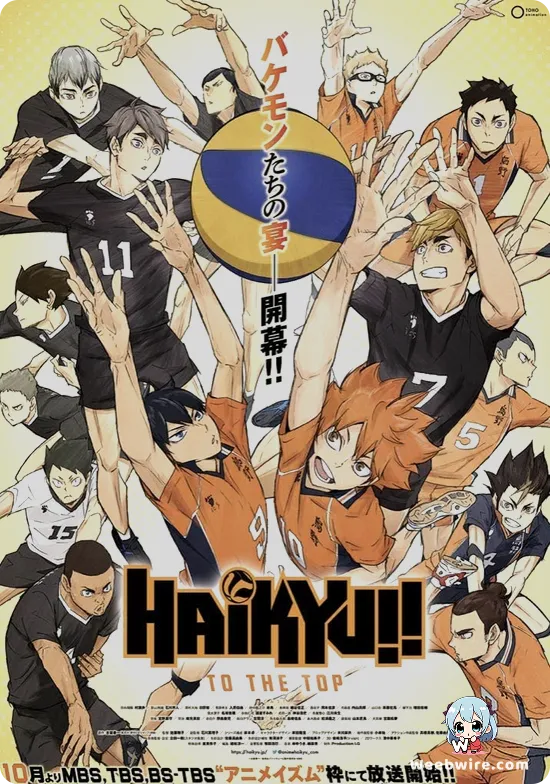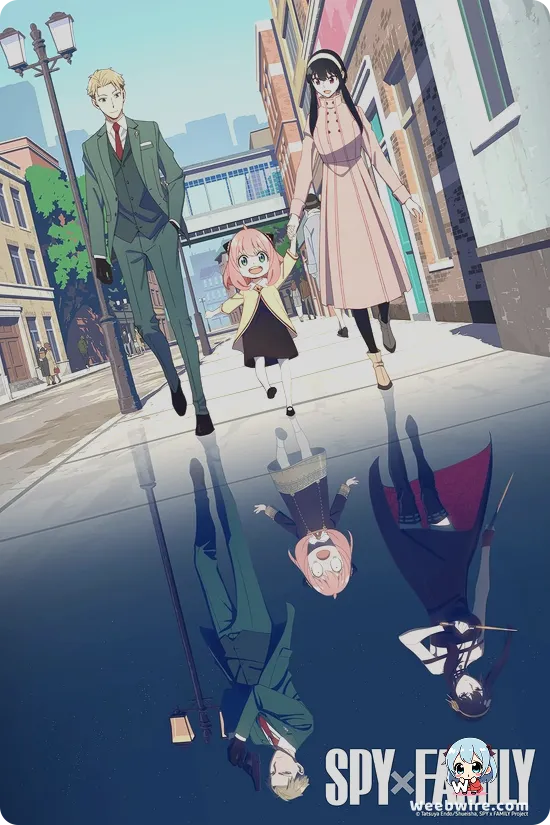

© Shaft
Sayonara, Zetsubou-Sensei
Overview
Sayonara, Zetsubou-Sensei is a distinctive dark comedy anime that plunges viewers into the world of Nozomu Itoshiki, a high school teacher whose name itself is a clever pun on despair. Known for his profound and often comically extreme pessimism, Itoshiki navigates daily life through a lens of existential dread and societal critique. The series masterfully employs satire and absurdism, presenting a unique perspective on contemporary Japanese society and universal human foibles. The primary setting is a seemingly ordinary high school classroom, specifically class 2-He, where Nozomu interacts with a diverse roster of 32 students, each embodying a specific quirk or extreme personality trait that serves as a microcosm of societal issues. His perpetually morbid demeanor is constantly challenged by the relentlessly optimistic and eccentrically positive student, Kafuka Fuura, who acts as a vibrant, almost surreal foil to his deep-seated despair. Through their interactions and the often bizarre situations that arise, the narrative cleverly satirizes various facets of modern culture, societal pressures, communication breakdowns, and underlying existential angst, all wrapped within a sharply intelligent comedic framework. Most episodes function as standalone sketches, offering a loose continuity that allows for extensive exploration of a myriad of themes, primarily the perpetual clash between despair and hope. The storytelling is intentionally unconventional, often resorting to slapstick and surreal gags that defy typical anime narrative structures. Studio Shaft's signature animation style perfectly complements this offbeat tone, utilizing distinctive visual gags, creative framing, and a unique aesthetic that enhances the satirical and often surreal atmosphere. Sayonara, Zetsubou-Sensei stands out not only for its razor-sharp humor and profound social commentary but also for its unforgettable cast, delivering both uproarious laughter and genuinely thought-provoking moments.
Opinion
Sayonara, Zetsubou-Sensei presents itself as an exceptionally crafted and uniquely stylized anime, expertly navigating the delicate balance between dark humor and incisive social commentary. The animation, a hallmark of Studio Shaft, is particularly noteworthy for its distinctive visual language, employing sharp contrasts, dynamic camera angles, and minimalist backgrounds that collectively forge a surreal and satirical atmosphere. This aesthetic choice is not merely stylistic but serves to amplify the series' thematic depth, visually mirroring the protagonist's skewed perception of the world. Character development, while often presented through exaggerated caricatures, is remarkably effective; each student in Itoshiki's class represents a distinct facet of societal issues or human psychological extremes. This ensemble creates a rich tapestry of interactions that consistently engage the viewer and fuel the show's character-driven humor. The voice acting, spearheaded by Junji Majima as Nozomu Itoshiki and Aya Hirano as Kafuka Fuura, is stellar, perfectly capturing the nuanced despair and relentless optimism of their respective roles, adding significant layers to the comedic and dramatic elements. Story pacing, given the episodic and sketch-comedy format, is brisk and allows for a wide array of themes and jokes to be explored without the burden of a continuous overarching plot. This structure, rather than being a limitation, proves to be a strength, enabling the series to delve into varied cultural and psychological issues with precision and wit. The central thematic juxtaposition between Itoshiki's profound hopelessness and Fuura's almost absurd optimism provides a robust foundation for examining the coexistence of despair and hope in contemporary life. Ultimately, Sayonara, Zetsubou-Sensei excels in its capacity to provoke laughter while simultaneously encouraging profound reflection on modern societal absurdities, cementing its status as a standout work of unconventional comedy.
Characters
Kafuka Fuura
Voice: Aya Hirano
Chiri Kitsu
Voice: Mamiko Noto
Saki Kubota
Voice: Mai Nakahara
Nozomu Itoshiki
Voice: Junji Majima
Credits
Studio
Shaft
Cover Art
Shaft Animation Studio / Promotional Art Team
Publisher
Kodansha
Producers
Starchild Records, Omnibus Promotion





